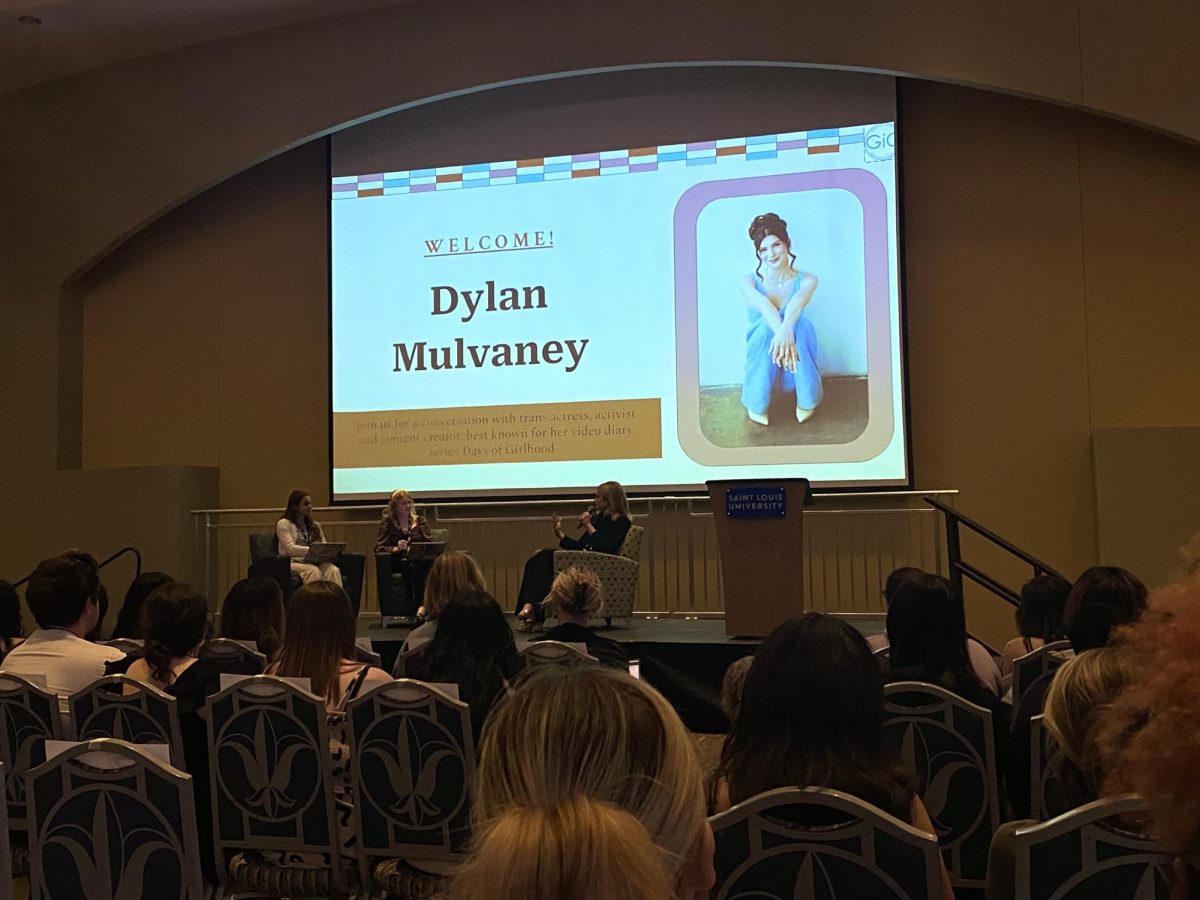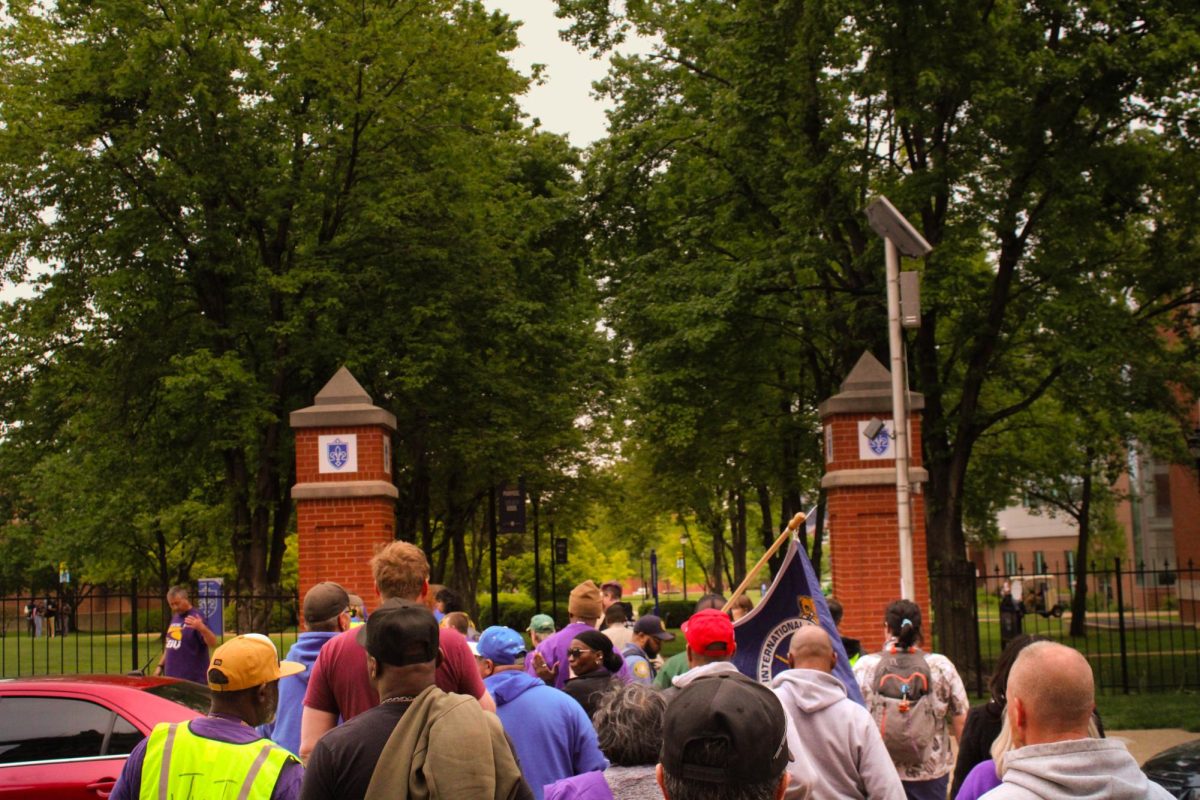Belden Lane is well-known on campus for his unique style of teaching theology. In his 30 years at Saint Louis University, he has shown that perhaps the best way to teach what matters most is through the art of storytelling.
“You can’t teach worth a damn without telling stories,” said Lane.
In his Last Lecture speech, he stayed true to this philosophy, sharing the five things that he believes to be the most important things to live for and accompanied each with a story.
The Last Lecture series is a program run through the Department of Undergraduate Initiatives. It is based off of the popular “Last Lecture” speech given by Randy Pausch after he learned that he had terminal cancer.
Each semester, a faculty member at SLU is nominated by the students to give the lecture they would if it was last they would ever give. It is a chance for the speaker to reflect on their life and impart knowledge on students outside the classroom setting.
“If I were told that I had six months to live, what would I say in my last lecture at SLU? I’d have to be honest, that’s for sure,” Lane said. “You don’t [BS] yourself or others at a time like this.”
Lane’s first lesson was his belief that the culture handed down to us is one of the most profound foundations we can live our life from.
“I learned that it takes a thousand year running head start to do anything new in history,” said Lane. “You have to build on the past. You’re responsible for learning all the stories passed on from one generation to the next. That’s where the collective wisdom of the elders is kept.”
Lane cited this as the motivating factor in his use of stories in the classroom. He believes that our culture is what makes us human. He followed this with the story of Vedran Smailovic, a cellist from Bosnia who vowed to play Albinoni’s Adagio in G minor for twenty-two days amid the rubble of a bakery he witnessed being bombed during the Siege of Sarajevo.
“What does the human spirit do when civilization itself is on the ropes? Smailovic would say you continue to perform. You do what you can to keep the tradition alive. To let no one forget the dignity of the human person,” Lane said.
In Lane’s second lesson, he went on to lecture the audience in the importance of questioning authority.
“Being a pain in the ass in the face of injustice is a moral necessity that I have learned from Jesus of Nazareth, from a stubborn woman named Dorothy Day, and from a radical priest by the name of Oscar Romero,” Lane said.
Lane went onto say that sometimes atrocities are committed in the name of tradition, and to follow it blindly would be a disservice. He then told the story of Dorothy Day, who was arrested in New York City during the Cold War because she refused to participate in mandatory air raid drills, as they were a “fear tactic” to justify the actions of the American government.
Lane’s third lesson was one he claimed was close to him: finding God in nature.
“The best of my teaching and writing over the years has had to do with that connection of nature and spirituality,” Lane said. “How does creation fill us with wonder and even lead us to God?”
He spoke of the importance of respecting nature and environmental activism, supporting his lesson with a Native American tale of a young hunter’s first hunt and how important it was to him to properly give thanks for all that nature has to offer.
Lane’s fourth theme was the importance of having faith in the powerful love of God. He attested that all he does is traced back to this idea.
“What I do best, I have to do whole-heartedly, and in the tap root of that passion is a desire for God,” said Lane.
He told a story of a man who believed that what God wanted from him was bread. He believed that God took the bread and granted him favor, when it was actually a poor man eating the bread, under the impression that it came from God. The men were brought together by their faith in God to provide.
Lane’s final lesson dealt with not taking things too seriously. He acknowledges the importance of playing “the fool” in the seriousness of everyday life.
“The fool is tremendously important. He or she is the one who laughs at what others take seriously, and take seriously what others laugh at,” Lane said. “The fool invites us to accept who we truly are without having to be anything else or anyone else in the world.”
Lane told the story of a man, who despite being called foolish in his efforts, finds a great treasure in his own home and dies wealthy.
“It takes a fool to recognize that the treasure is at home all along. What four years at a Jesuit University should aim to teach us is that the treasure is within us. Just to be is a blessing. Just to live is holy.”
Lane’s speech was met with positive feedback from the audience.
“His speech touched my soul,” said freshmen Sean Everson, “I can’t put it into words how great of a speech it was.”






